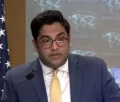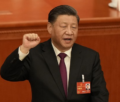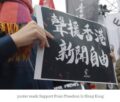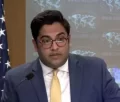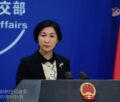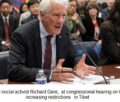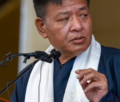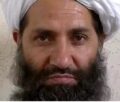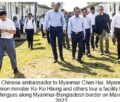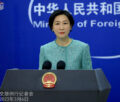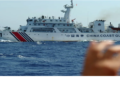US State Dept Presser, Aug 11


The US State Department held a press briefing on Aug 11 afternoon.
Excerpts
MR PATEL: Hey everyone, good afternoon and welcome to the daily press briefing. This is Vedant Patel, Principal Deputy Spokesperson here at the department. I don’t have anything for you at the top today, so I am happy to take your questions.
MR PATEL: Let’s go to the line of Leon Bruneau with AFP.
QUESTION: Okay, yes. Hi, Vedant. Leon here. Just a quick question. What can you tell us on the record on the Iran nuclear deal?
MR PATEL: We and the Europeans have made quite clear that we are prepared to immediately conclude and implement the deal we negotiated in Vienna for a mutual return to the full implementation of the JCPOA. But for that to happen, Iran needs to decide to drop their additional demands that go beyond the JCPOA. Ultimately, the choice is theirs. This administration along with our allies and partners are preparing equally for scenarios with and without a mutual return to the full implementation of the JCPOA. The President and Secretary Blinken will only conclude a deal that we determine is in the national security interest of the United States.
Our message to Iran is very clear: we will not tolerate threats of violence against Americans, and that certainly includes former government officials. This administration has been clear that it will ensure Iran never acquires a nuclear weapon, and we believe the best path to achieving that goal is through diplomacy. And as long as we believe pursuing a JCPOA is in U.S. national security interest, we’re going to continue to do so.
Let’s go to the line of Simon Lewis with Reuters.
QUESTION: Hi, thanks. Thanks, Vedant. Yeah, just I wanted to see if the United States has a response or a comment on the decision by Latvia and Estonia to withdraw from the cooperation group with China that they announced today. And I wondered how does that – how does that sort of reflect Europe’s response to the tensions happening in Taiwan? And do you think this has any way to China’s relationship with Russia given the invasion of Ukraine?
MR PATEL: Sure, let me try to address that in a couple parts. First, to the first part of your question, we respect and support Estonia and Latvia’s sovereign decision to no longer participate in the 16+1 initiative. We will continue to closely support their efforts to make the Baltics a more resilient and prosperous region. Estonia and Latvia are important and valued NATO Allies and key U.S. partners across a number of issues, including through our strong defense ties, our strong economic ties, as well as the promotion of democracy and human rights. Beyond our commitments to these same values, our free, democratic countries produce prosperity that helps both of our economies thrive.
On the second part of your question relating to China’s relationship in Europe, a pillar of this administration’s approach to the PRC is aligning with our allies and partners in Europe and around the world. This administration believes that our likeminded allies in Europe and the Indo-Pacific hold similar visions for the future of the international order and can realize our goals most effectively when we work together.
Over the past year, we’ve seen countries around the world express deep concern about the PRC’s strategic alignment with Russia as well as Beijing’s support for Moscow’s war against Ukraine. As Secretary Blinken has said before, there is a growing convergence about the need to approach relations with Beijing with more realism.
Next let’s go to the line of Ellen Knickmeyer with the Association Press.
QUESTION: Hi, thank you. Secretary Blinken is in Rwanda today, and it looks like he was quite outspoken about human rights and democracy there. He raised the issue of – the Texas-based Rwanda critic of Kagame who is in prison there now. Is the U.S. treating that person’s case with the same immediate concern that it’s treating Griner and other Americans being held in Russia?
MR PATEL: Thanks for your question, Ellen. I believe you’re referring to the case of Mr. Paul Rusesabagina, who, as you mentioned, is currently being detained in Rwanda. I will reiterate what the Secretary said at his joint press availability today, which is that we continue to urge the government to address concerns about the legal protections afforded to Mr. Rusesabagina and his case, as well as establish safeguards to prevent similar outcomes in the future.
More broadly speaking, the U.S. is aware of the appellate court’s decision upholding the conviction of Mr. Rusesabagina. Our concerns over the trial and conviction remain. We have also been made aware of some serious health concerns of Mr. Rusesabagina, and we’re continuing to urge to the Government of Rwanda ensure that he receive all appropriate and necessary medical care.
More broadly, this department is laser-focused and committed to any American citizen who is wrongfully detained abroad. We have our team at the State Department, including – led by Special Presidential Envoy for Hostage Affairs Roger Carstens, who remains in close touch on this issue, and it continues to be a top priority.
Let’s go to the line of Jen Hansler with CNN.
QUESTION: Hi, thanks. Questions on two topics. One, the Brittney Griner and Paul Whelan proposal. Has there been any movement on that deal? And then on the New START Treaty and the impasse over the inspections, Deputy Foreign Minister Ryabkov seemed to suggest that there was a U.S. team that intended to go do an inspection without Russian approval. Is there anything you can tell us on that?
MR PATEL: So, on your first question, the U.S. Government continues to urge Russia to release wrongful detainees Brittney Griner and Paul Whelan. The conviction and sentencing by a Russian court of Brittney Griner to nine years in prison further compounds the injustice of her wrongful detention.
The administration – and Secretary Blinken has spoken to this a number of times – has been quite clear that there is a substantial proposal on the table to facilitate their release of Brittney Griner and Paul Whelan. This proposal has been raised through appropriate channels. Secretary Blinken has been able to raise this directly with his counterpart, Foreign Minister Lavrov. And ultimately, the ball is in Russia’s court.
On New START – on New START – so just to take a little bit of a step back, the U.S. and Russia had paused inspection activity due to the COVID-19 pandemic since the spring of 2020. Both sides have continued to provide data declarations and notifications in accordance to the treaty. The U.S. is committed to implementation of the New START Treaty. And as President Biden has said, today perhaps more than any other time since the Cold War, we must work to reduce the risk of an arms race or nuclear escalation. We keep discussions between the parties concerning treaty implementation confidential.
Operator, let’s go to the line of Camilla Schick with CBS News.
QUESTION: Hi, Vedant. Thanks. The State Department put out a release yesterday ahead of the 10-year anniversary of the abduction and disappearance abroad of American journalist Austin Tice. That release said that the State Department will, quote, “continue to engage with the Syrian Government.” Are you able to say at all whether this engagement with the Syrian Government is current or not, and if it is direct or indirect? Thank you.
MR PATEL: Thanks for your question. So, again, to take a little bit of a step back, Austin Tice this week will have spent 10 years in captivity in Syria. We call on the Syrian Government to ensure Austin Tice and every U.S. national held hostage in Syria is able to return home. We can’t get into investigative details, but what I will underscore is that the U.S. Government knows with certainty that Austin was held by the Syrian Government and that they have the power to release him. We think Bashar al-Assad has the power to release Austin Tice, and we call on Syria to work with us to secure his release and bring him home.
Operator, let’s go to the line of Michel Ghandour.
QUESTION: (Inaudible.) Yeah, the first question was Turkish foreign minister has announced that he met the Syrian foreign minister in Belgrade in October, if you have any comment on that. And the second question: Is there any updates on Advisor Hochstein’s mediation between Israel and Lebanon?
MR PATEL: Let me take your second question first, Michel. So the U.S. remains committed to facilitating negotiations between Lebanon and Israel to reach a decision on the delimitation of the maritime boundary. Progress towards a resolution can only be reached through negotiations by the two governments. We welcome the consultative and open spirit of the parties to reach a final decision which has the potential to yield greater stability, security, and prosperity for both Lebanon and Israel, as well as for the region, and we believe that a resolution is possible.
Operator, let’s go to the line of Elizabeth Hagedorn.
QUESTION: Will the U.S. be granting Iranian President Raisi a visa to attend next month’s UN General Assembly?
MR PATEL: Thanks for your question. So, broadly speaking, visa records are confidential under U.S. law, but as host nation of the UN, the United States is generally obligated under the UN Headquarters Agreement to facilitate travel to the headquarters district by representatives of UN member states. We take our obligations under these agreements very seriously. But again, to reiterate, visa records are confidential under U.S. law.
Let’s go to the line of Jiha Ham of Voice of America.
QUESTION: I have two questions today; one on North Korea. North Korean leader Kim Jong-un yesterday declared victory in the battle against the coronavirus in order to lift some of their restrictions. So, do you have any comments on this?
And my second question is that China has been demanding South Korea not to deploy the U.S. anti-missile defense system, THAAD. It is asking South Korea to maintain the “three noes” policy. So, one of the noes is no additional deployment of THAAD. So, what’s your position on the “three noes” policy and China’s strong opposition on THAAD?
MR PATEL: So first on your question about COVID-19, look, we are very concerned about how COVID-19 could affect the North Korean people, and we continue to support the provision of vaccines to the DPRK. To this end, we strongly support and encourage the efforts of international aid and health organizations in seeking to prevent and contain the spread of COVID-19 in the DPRK and to provide other forms of humanitarian assistance to vulnerable groups in the country. To date, DPRK has refused all vaccine donations from COVAX. We continue to support international efforts aimed at the provision of critical humanitarian aid to the most vulnerable North Koreans. Should the DPRK request vaccines, we stand ready to offer them, and we urge and reiterate for the DPRK to work with the international community to facilitate the rapid vaccination of its population.
On the second part of your question, the U.S. assesses the DPRK is preparing its Punggye-ri test site for what would be its seventh nuclear test. This assessment is consistent with the DPRK’s own public statements. We are preparing for all contingencies in close coordination with our Japanese and ROK allies. Furthermore, we are prepared to make both short and longer-term adjustments to our military posture as appropriate in responding to any DPRK provocation. We’re concerned by the regime’s strengthened rhetoric around its nuclear program. A seventh nuclear test since 2017 would constitute a grave escalatory action and seriously threaten regional and international stability as well as security, not to mention undermine our planet’s non-proliferation efforts. Such an action would also be dangerous and deeply stabilizing[2] to the region.
On THAAD – on THAAD, we believe THAAD is a prudent and limited self-defence capability designed to counter DPRK weapons programs. Criticism or pressure on the ROK to abandon its self-defences is inappropriate. The United States and the ROK made an alliance decision to deploy THAAD to the ROK as a purely defensive measure to protect the ROK and its people from armed attack and to protect alliance military forces from the DPRK’s weapons of mass destruction and ballistic missile threats.
Let’s go to the line of Alex Raufoglu.
QUESTION: Couple of questions on Ukraine and Russia. Ukrainian foreign minister called on Western countries yesterday to stop issuing visas to Russian citizens. Yesterday, DAS (inaudible) staff from the visa services bureau confirmed to me that there is no restriction at this point on Russian travellers. Are you considering to review this in response to Ukraine’s request?
Secondly, if there’s any comment on your end from Latvia parliament yesterday naming Russia as a state sponsor of terrorism. Do you applaud that? What is your reaction?
And lastly, there’s – there are reports that during last couple of weeks Russian officials conducted training in Iran as part of the agreement on UAV transfers from Iran to Russia. Any reaction to those reports?
MR PATEL: I will answer the last one first. So, on the delivery of UAVs to Russia, what I will first say and go back to is, as National Security Advisor Jake Sullivan told CNN in July, the U.S. Government has information indicating Iran is preparing to provide Russia with several hundred UAVs, including weapons-capable UAVs. We’ve also said that we assess an official Russian delegation recently received a showcase of Iranian attack-capable UAVs. We can confirm that during the last several weeks, Russian officials conducted training in Iran as part of the agreement of the UAV transfers.
Let me be clear: We will vigorously enforce all U.S. sanctions on both the Russian and Iranian arms trades. The kind of transactions you’re mentioning are potentially sanctionable under numerous authorities, including but not limited to Russia-specific authorities and our worldwide non-proliferation sanctions. We remain incredibly concerned about Iran’s use and proliferation of UAVs. They have been used to attack U.S. forces, our partners in the region, and international shipping entities. We will continue to use all available tools, including but not limited to sanctions, to prevent, deter, and dismantle the procurement network that supply UAV-related material and technology to Iran.
Alex, would you remind – would you restate your other two questions, please?
QUESTION: Yes, of course. Yeah, other two questions were about, first of all, reaction to Latvian parliament’s yesterday’s decision on naming Russia a state sponsor of terrorism. Do you applaud that decision? And what is your reaction?
And lastly, as you know, Ukrainian Government has been urging – calling on Western countries – in particular G7 countries, which the U.S. is one of them – to stop issuing visas to Russian tourists. And as a State Department official confirmed yesterday, the Russian citizens are still able to obtain those visas. Are you in a position to give us any detail about whether or not State Department is considering to review that policy in response to Ukraine’s request? Thank you.
MR PATEL: Thanks for your question. So, on a potential designation, we’re just not going to discuss deliberations or potential deliberations on a potential designation from here. As a matter of law, in order to designate any country as a state sponsor of terrorism, the Secretary of State must determine that the government of that country has repeatedly provided support for acts of international terrorism.
The U.S. Government has already taken a number of significant and effective steps to respond to Putin’s war of choice, from export controls as well as sanctions and economic consequences as well. Our unprecedented sanctions are having a drastic impact on Russia. Russia’s stock market has lost a third of its value, inflation has risen 20 percent, Russia’s imports of goods from around the world could fall by 40 percent.
On your question about any visa ban, we’ve been very clear that we intend our actions to not harm or have significant impact on the Russian people. That is not who our disagreement with is on this.
Let’s next go to the line of Janne Pak from U.S. Journal Korea.
QUESTION: I have two questions for you. One is North Korea; one is China again. So North Korean leader Kim Jong-un’s sister, Kim Yo-jong, said yesterday the coronavirus was delivered from South Korea, and she announced that she would take the strong retaliation against South Korea. What is your comment on this?
The second one: China announced that it would resume trading with North Korea. Can this be seen as a violation of sanctions against North Korea?
MR PATEL: … We are incredibly concerned about how COVID-19 could affect the North Korean people and continue to support the provision of vaccines to the DPRK. To date, the DPRK has refused all vaccine donations from COVAX. We continue to support international efforts aimed at the provision of critical humanitarian aid to the most vulnerable North Koreans. Should the DPRK request vaccines, we stand ready to offer them.
On the potential resumption of trade with China, the second part of your question, let me reiterate what my colleagues here have said before. United Nations sanctions on the DPRK remain in place. We will continue to implement them and encourage others to fully implement them, including at the United Nations and with the DPRK’s neighbors. It is important for the international community to send a strong, unified message that the DPRK must halt all provocations and abide by its obligations under numerous UN Security Council resolutions, as well as engage in sustained and intensive negotiations with the United States.
Operator, let’s go to the line of Laurie Mylroie from Kurdistan24.
QUESTION: Thank you very much for taking my question. The Israeli defense minister today denounced Iranian support for Palestinian Islamic Jihad, calling it a violent Iranian proxy; it funds Palestinian Islamic Jihad, trains them. Do you share the Israeli views that Palestinian Islamic Jihad is so closely tied to Iran that Iran can be held accountable for its actions?
MR PATEL: Look, the United States is under no illusions about Iran’s destabilizing actions throughout the region. If Iran wants to show it can be a responsible actor, now is the time for it to play a constructive role in the region.
Next let’s go to the line of Roj Salla with Rudaw TV.
QUESTION: Thank you so much for taking my question. So Turkish defense minister said that a delegation will be visiting U.S. on August 15 to discuss the F-16 program. Can you update us on your position on the F-16 program? Is there any change, or do you see a way that Turkey and the U.S. could find a way to resolve the issues around the F-16s?
MR PATEL: The United States strongly values its partnership with our important NATO Ally, Turkey. The U.S. and Turkey have a longstanding, deep relationship with important defense ties, and Turkey’s continued NATO interoperability remains a priority. As a matter of policy I’m just not going to comment or confirm or get into proposed defense transfers until they have been formally notified to Congress, and I’d refer you to the Turkish Government for anything additional.
I think we have time for one final question. And so, we will close it back out with Ellen Knickmeyer from the AP.
QUESTION: Yeah, thank you. I had just wanted to ask you a follow-up about the – about Rusesabagina. Was there any progress made during Blinken’s visit about obtaining his release? And does the U.S. plan to move to any of the kind of negotiations or perhaps detainee swaps that are being talked about with Whelan and Griner in Russia?
MR PATEL: Thanks for your question, Ellen. I’m going to reiterate again what the Secretary said, which is that we continue to urge the government to address concerns about the legal protections afforded to him and his case, and establish safeguards to prevent similar outcomes in the future. We are going to also continue to push for consistent consular access, and we remain in close touch with Mr. Rusesabagina’s team. And the Secretary was able to raise this directly with President Kagame on his visit as well.
Thanks again, everybody, for joining today – for joining today’s press briefing. We’ll talk to you all again very soon.###
(The briefing was concluded at 2:43 p.m.)
-
Book Shelf
-
 Book Review
DESTINY OF A DYSFUNCTIONAL NUCLEAR STATE
Book Review
DESTINY OF A DYSFUNCTIONAL NUCLEAR STATE
- Book ReviewChina FO Presser Where is the fountainhead of jihad?
- Book ReviewNews Pak Syndrome bedevils Indo-Bangla ties
- Book Review Understanding Vedic Equality….: Book Review
- Book Review Buddhism Made Easy: Book Review
- Book ReviewNews Elegant Summary Of Krishnamurti’s teachings
- Book Review Review: Perspectives: The Timeless Way of Wisdom
- Book ReviewNews Rituals too a world of Rhythm
- Book Review Marx After Marxism
- Book Review John Updike’s Terrorist – a review
-
-
Recent Top Post
-
 News
Hong Kong Media: Safety Concerns Rise
News
Hong Kong Media: Safety Concerns Rise
-
 News
Alibaba’s Founder Returns to China
News
Alibaba’s Founder Returns to China
-
 News
Pak Urdu Media Digest – Mar 29, 2023
News
Pak Urdu Media Digest – Mar 29, 2023
-
 News
Congressional hearing examines Chinese repression in Tibet
News
Congressional hearing examines Chinese repression in Tibet
-
 News
China Accused of Meddling in Canada’s Elections
News
China Accused of Meddling in Canada’s Elections
-
 News
Exiled Leader Says Tibet Faces ‘Slow Death’ Under China
News
Exiled Leader Says Tibet Faces ‘Slow Death’ Under China
-
 News
Chinese coast guard ship chased out of Vietnam waters
News
Chinese coast guard ship chased out of Vietnam waters
-
 News
China Looks to Myanmar’s Rebel Armies to Shore Up Business, Border Goals
News
China Looks to Myanmar’s Rebel Armies to Shore Up Business, Border Goals
-
 News
China Tries to Block Prominent Uyghur Speaker at UNHRC
News
China Tries to Block Prominent Uyghur Speaker at UNHRC
-
 News
As Ramadan begins, China’s Muslims face fasting bans
News
As Ramadan begins, China’s Muslims face fasting bans
-


